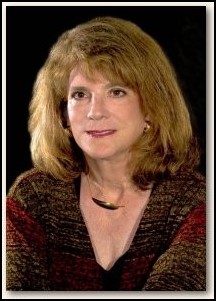
Elizabeth Loftus
|

Grawemeyer winner conducts 'memorable' research
Renowned psychologist presents findings to university
audience
By MATT THACKER
Staff Writer
news@louisvillecardinal.com
April 05, 2005
World-renowned
research psychologist Elizabeth Loftus presented her
findings to U of L students and faculty last Wednesday
as part of preparation for the annual Grawemeyer Awards.
Loftus, who drew international attention for her
research on the ability of human memory to be altered,
accepted the Grawemeyer Award for Psychology the next
day.
“It’s a huge, huge thrill,” Loftus said. “It’s the
biggest prize in psychology and it’s a tremendous honor
to have this award, especially when I see some of the
biggest names in psychology have won this award in the
past.”
The University of Louisville Grawemeyer Awards have
been presented annually since 1985 in the categories of
education, improving world order, music composition,
psychology and religion. The psychology award was added
in 2000. Former winners in the field of psychology
include Nobel Prize winner Daniel Kahneman and Aaron
Beck, who is credited with developing the system of
psychotherapy.
Charles Grawemeyer founded the awards in 1984.
Grawemeyer graduated from U of L in Chemical Engineering
but he wanted to support the liberal arts and started
the awards to honor important ideas rather than overall
career work or famous achievements. After winning both
the Nobel Prize and the Grawemeyer Award, Kahneman said
he felt the latter was more important.
“I think we have a lot to be proud of here at U of L,
and the Grawemeyer celebration is yet another indicator
of that excellence that we all strive for,” said Dennis
Molfese, chair and professor of the Psychological and
Brain Sciences department.
The award winners each receive $200,000. While Loftus
joked during her presentation that one of her first
congratulatory calls came from a friend asking to borrow
some money, she says she has already begun putting the
money to good use by donating to psychological research
at the University of California. Loftus teaches
psychology and social behavior at the University of
California-Irvine.
“Dr. Elizabeth Loftus readily earned this award for
her work into the notion of repressed memories,” Molfese
said. “Her visit to U of L brings one of the top
scientists in psychology in the world to our campus.”
During her presentation, Loftus argued that many
people have been wrongly convicted of crimes because of
faulty memories from witnesses. Her research shows how
adding incorrect details to true events in a person’s
childhood can change the way people think of their past.
She has managed to convince subjects that during their
childhood they experienced trauma, rode in a hot-air
balloon or visited Mount Rushmore by showing them false
psychological profiles pointing toward certain childhood
causes or by simply editing childhood photographs.
Afterwards, many subjects created elaborate stories
around their false memories.
“Even false memories have a lot of sensory details in
them,” Loftus said.
In one experiment, some subjects became convinced
they had seen Bugs Bunny, a Warner Brothers character,
at Disneyland during a childhood vacation after Loftus
created a flier with Bugs standing in front of a sign
for Disney.
“I would like to meet the people who don’t believe
this research,” said Patrick Gabbard, a junior who had
already read Loftus’ work. “It seems blatantly obvious
with her research that memories can be changed.”
Loftus has had her share of critics though, which she
addressed during her emotional acceptance speech on
Thursday. She said she has had death threats aimed
toward herself as well as state and government officials
because of her work. She also mentioned criticism she
has received from newspapers, including The
Courier-Journal, which called her the “most
controversial” Grawemeyer winner since Mikhail
Gorbachev.
“When I began my life work on the fallibility of
memory, I had no idea it would one day prove to be such
a socially relevant and politically explosive topic,”
she said. “But I’m proud of the work I’ve been able to
accomplish as a psychological scientist and proud of the
people whom I’ve had a chance to help along the way.
I’ve learned to accept the hassles as the price that all
scientists pay for doing research that matters or that
threatens deeply held beliefs.”
While the research may seem controversial to some,
many students at the presentation felt Loftus’ research
will strongly impact society.
“The research is important because every day we have
cases in the court where witnesses think something
happened, but it really didn’t,” said freshman Mayra
Barcenas.
